No Longer Keeping Our Heads Down
Asian American executives have long tried to blend in but are now starting to proudly stand out.
During the pandemic, after our letter in the Wall Street Journal was published, many people commented that they had no idea that so many successful companies were founded and led by Asian Americans. So I wrote this Medium post listing companies that were started by Asian Americans. Companies that are household names around the country and world such as YouTube, Zoom, LinkedIn, DoorDash, Rotten Tomatoes, Pinterest, Snap and many more. As I built Hyphen Capital, people who visited my website were shocked by how many executives in prominent corporate positions were Asian, with more being added to the ranks each day. I produced the documentary 38 at the Garden to memorialize how Jeremy Lin inspired so many with his breakout with the Knicks, because it’s so important to see what you want to be. The same is true for Asian Americans in business who need to see that others that look like them are piercing the veil of the executive offices and board rooms of Corporate America. In the past few years, organizations such as Gold House, The Asian American Foundation (TAAF), and Ascend have shined a spotlight on the success and influence of Asian American executives. And the brightest lights have been shining in May, which we celebrate as AAPI Heritage Month. From Nasdaq to NYSE, from Hollywood to the White House, we have been on a month-long high of connecting with one another and acknowledging the progress of our community.
But there is still a lot of work to be done. Despite the rise of Asian Americans in the board room, here are some disconcerting facts from a 2022 Goldman Sachs report:
Asian Americans make up only 2% of CEOs at S&P 500 Companies.
Asian Americans make up 13% of professionals at large employers but only 6% of senior management positions.
Asian American men with a graduate degree born in the US are 15% less likely to be in executive positions than white men with the same education credentials.
39 Asian Americans have become CEOs at Fortune 500 companies (nearly all of them were either born, raised, or educated in the West).
22 of the 39 have a South Asian background
These Asian Americans execs are more likely to have graduate degrees and to lead younger firms than their white-CEO counterparts.
82% of the Asian Americans who got CEO appointments came after the company had had a financial stumble. Equity returns also recovered following the median appointment.
Since the Immigration Act of 1965, the best and the brightest from Asia came to this country in droves to earn their graduate degrees and build a better life for their families in the land of opportunity. They toiled away in research labs like Xerox Parc in Palo Alto, IBM in Rochester, and Bell Labs in New Jersey. The children of those highly educated immigrants were raised to get into the top schools in the country and work at law firms, investment banks and consulting firms. Now that second generation of Asian Americans is coming of age. As many enter their 40s and 50s, they are becoming executives at the biggest companies in the world. While the previous generation may have held executive positions, they rarely highlighted their Asian backgrounds or upbringings. In fact, they would rather it wasn’t noticed because they had worked so hard to assimilate and blend in with their colleagues. But this generation is different. Because of the rise of anti-Asian discrimination and hate crimes during the pandemic, Asian American executives around the country have become more outspoken and are proud of their heritage. They credit it as a point of strength, rather than something to be apologetic about.
Our kids are growing up differently than we did, because they’re seeing themselves on screen. Growing up, the only people I saw on American television that looked like me were caricatures like Long Duk Dong and Mr. Miyagi. I would be happy to see even one Asian face on screen and pray that the show was not going to be canceled. Vanishing Son or Sidekicks anyone? Even today, only 52% of Americans can name a single famous Asian American. 9% of those surveyed named Jackie Chan, who is not even American. But the world is still dramatically different for Asian American kids today than it was when I was growing up in the 80s and 90s. They can see themselves in Fresh Off the Boat, Never Have I Ever, Shang Chi, American Born Chinese, Beef, Everything Everywhere All at Once, The Brothers Son, Turning Red, and more. They can go to concerts featuring Asian artists like BTS, BLACKPINK, Olivia Rodrigo, Saweetie, Conan Gray, H.E.R. and others. They can watch stand up comedy acts by Ali Wong, Ronnie Chieng, Jimmy O Yang, Sheng Wang and many others. Asian American kids have more creative inspirations than ever before and it will inevitably lead to many future entertainers and stories from the next generation.
The same can be said of kids looking at the covers of Forbes and Fortune magazine. Growing up, it was rare to see anyone but older white men on the front pages of top business publications. Now we see the faces of Jensen Huang, Satya Nadella, Sundar Pichai or Lisa Su regularly in the Wall Street Journal or The New York Times. It made a huge impact early in my career to work for a Taiwanese American founder and executive like Jerry Yang at Yahoo. It made my ceiling of what was possible much higher than others. I could see what I wanted to be in Jerry. It made me less afraid to start and lead two companies.
This is why I wanted to compile another list of inspirational leaders and executives that are breaking through the bamboo ceiling in their respective industries. This required going through dozens of executive leadership websites, many of which had zero AAPIs (or any people of color for that matter) represented like these:
Unlike the founder list which does not change and will only grow larger, this list of executives is a snapshot in time (May 2024). New names will be added and others will no longer hold the same positions. Note that I could not find a single executive that is Pacific Islander or Native Hawaiian.
Sports
The number of AAPI executives in professional supports that are in operations roles is still depressingly small, despite the fact that a high number of NFL players and veterans are Pacific Islanders. Some of the names on my list are only there because they had to buy their way into ownership of the teams. Sports is still very much an old boys club and fraternity, which only ownership and the leagues can ultimately change.
Mark Tatum, Deputy Commissioner and COO of the NBA
Rich Cho, VP of Basketball Strategy, Memphis Grizzlies
Paraag Marathe, President of 49ers Enterprises, San Francisco 49ers EVP of Football Operations, Chairman of Leeds United
Tammy Henault, CMO of the NBA
Kim Pegula, Owner of the Buffalo Bills and Buffalo Sabres
Shahid Khan, Owner of the Jacksonville Jaguars
Vivek Ranadive, Owner of the Sacramento Kings
Joe Tsai, Owner of the Brooklyn Nets
Alex Chang, CMO of San Francisco 49ers
Hailey Sullivan, CMO of Denver Broncos
Sandra Douglass Morgan, President of the Las Vegas Raiders
Entertainment
In the past six years alone, since Crazy Rich Asians, we’ve seen more Asian American stories and projects greenlit than we have in a century. This was no accident or coincidence. McKinsey reported that an increase in off-screen talent (executives and others) increases on-screen representation.
“Among US-distributed television shows with no API talent in key off-screen roles, about 3 percent had at least one API lead. But more than 21 percent of shows with at least one API person in a key off-screen role had an API lead (Exhibit 6). The pattern is even more pronounced in US-produced films. Among movies with no API talent in key off-screen roles, just under 6 percent have at least one API lead. But when an API professional is in an off-screen role, the share of films with an API lead goes up to 37 percent.”
More than half (52 percent) of creative executives surveyed by CAPE across all levels said they lacked mentorship, and nearly one in five were considering leaving their jobs.
Dan Lin, Chairman of Film, Netflix
Albert Cheng, Head of Prime Video US, Amazon
Mike Van, President of Billboard
Howard Lee, President of Discovery Networks and TLC
Imran Majid, CEO of Island Records
Katherine Liu, COO of International Markets at Paramount
Dylan Jadeja, CEO of Riot Games
Janet Yang, President, Academy of Motion Picture Arts and Sciences
Ramsey Naito, President Nickelodeon Animation, Paramount Animation
Asad Ayaz, Chief Brand Officer of The Walt Disney Company
Ginger Chan, CMO of WME
Bela Bajaria, Chief Content Officer of Netflix
Agnes Chu, President of Condé Nast Entertainment
Annie Lee, COO of Interscope Capitol Labels Group
Avi Saxena, CTO of Warner Bros. Discovery
Journalism and Media
It’s encouraging to see the inroads Asian Americans have made in journalism. Much of the credit for that goes to the Asian American Journalists Association. This community has been pivotal in advocating for representation at news outlets across the country.
Hannah Yang, Chief Growth and Customer Officer of The New York Times
Michael Luo, Editor of newyorker.com
Radhika Jones, Editor-in-Chief of Vanity Fair
Catherine Kim, Senior Vice President, Editorial, NBC News
Vineet Khosla, CTO of The Washington Post
Hanya Yanagihara, Editor-in-Chief, T: The New York Times Style Magazine
Divia Thani, Global Editorial Director, Condé Nast Traveler
Nilay Patel, Editor-in-Chief of The Verge
Swati Sharma, Editor-in-Chief and Publisher of Vox
Terry Tang, Executive Editor of the Los Angeles Times
Sewell Chan, Editor-in-Chief of the Texas Tribune
Technology
As expected, the highest representation of AAPIs in any industry by far is in tech, given the strong emphasis on STEM in Asian cultures. But even then, EEO-1 data from 2022 shows that despite making up 43.8% of Fortune 500 tech companies, AAPIs only make up 23.3% of executives, compared to their white colleagues who make up 42.1% of the workforce but increases to 65.8% of leadership roles. An analysis of senior leadership on corporate websites in February 2024 showed 74.7% of most senior leaders are white and only 19.8% are AAPI (~4x disparity). Many of these names are in their CEO roles because they were the founders of the company, not because they were placed in that position. They didn’t have to break through a bamboo ceiling because they built their own houses like Jensen Huang, Tony Xu and Eric Yuan did.
Sundar Pichai, CEO of Alphabet
Satya Nadella, CEO of Microsoft
Jensen Huang, CEO of Nvidia
Lisa Su, CEO of AMD
Shantanu Narayen, CEO of Adobe
Arvind Krishna, CEO of IBM
Eric Yuan, CEO of Zoom
Tony Xu, CEO of DoorDash
Debby Soo, CEO of OpenTable
Bernard Kim, CEO of Match Group
Deb Liu, CEO of Ancestry
Faye Iosotaluno, CEO of Tinder
Rahul Roy-Chowdhury, CEO of Grammarly
Neal Mohan, CEO of YouTube
David Ko, CEO of Calm
Garry Tan, CEO of YCombinator
Alexandr Wang, CEO of Scale AI
Niraj Shah, CEO of Wayfair
Hock Tan, CEO of Broadcom
Jennifer Tejada, CEO of PagerDuty
Sanjay Mehrotra, CEO of Micron Technology
Nikesh Arora, CEO of Palo Alto Networks
Anjali Sud, CEO of Vimeo
Thomas Kurian, CEO of Google Cloud
Yamini Rangan, CEO of Hubspot
Kenneth Lin, CEO of Credit Karma
Clara Shih, CEO of Salesforce AI
Eunice Kim, Chief Product Officer of Netflix
Susan Li, CFO of Meta
Marian Lee, CMO of Netflix
Sabrina Ellis, Chief Product Officer of Pinterest
James Chuong, CFO of LinkedIn
Tim Wan, CFO of Asana
Takeshi Numoto, CMO of Microsoft
Amrita Ahuja, COO and CFO of Block (Square)
Jason Kwon, Chief Strategy Officer of OpenAI
Carol Carpenter, CMO of Unity
Gloria Chen, Chief People Officer of Adobe
Prashanth Mahendra-Rajah, CFO of Uber
Srini Tallapragada, President and Chief Engineering Officer of Salesforce
Chris Bedi, Chief Digital Information Officer of ServiceNow
Chirantan Desai, President and COO of ServiceNow
Jae Evans, Global Chief Information Officer of Oracle
Khozema Shipchandler, CEO of Twilio
Vaibhav Taneja, CFO of Tesla
Anu Bharadwaj, President of Atlassian
Rajeev Rajan, CTO of Atlassian
Hiroki Asai, Global Head of Marketing of Airbnb
Marie Oh Huber, Chief Legal Officer of eBay
Archana Deskus, CTO of PayPal
Amy Wei, COO of OpenTable
John Kim, Chief Product Officer of PayPal
Sandeep Aujla, CFO of Intuit
Sarah Kim, Chief Customer Success Officer of Intuit
Susan Lee, Chief Growth Officer of OpenTable
Advertising
Asian American women have made a name for themselves at the biggest advertising agencies in the world.
Tesa Aragones, President, North America of AKQA
Michelle Tang, Global Chief Growth Officer of McCann
Helen Lin, Chief Digital Officer at Publicis Groupe
Cynthia McIntyre. Chief Growth Officer at Publicis Groupe
Susie Nam, CEO of Publicis Creative US
Carla Serrano, Global Chief Strategy Officer, Publicis Groupe and CEO, Publicis NY
Financial Services
Despite making up 15% of the employees at the six biggest U.S. banks, very few AAPIs hold leadership roles in operating committees. There was only 1 CEO.
Sunil Garg, CEO of Citibank, North America
Ida Liu, Global Head of Citi Private Bank
Joseph Bae, Co-CEO of KKR & Co.
Anand Selvakesari, COO of Citi
Sachin Mehra, CFO of Mastercard
Chris Suh, CFO of Visa
Carla Hassan, CMO of JPMorgan Chase
Raja Rajamannar, Chief Marketing & Communications Officer of Mastercard
Ravi Radhakrishnan, Chief Information Officer of American Express
Aditya Bhasin, Chief Technology and Information Officer of Bank of America
Sanoke Viswanathan, Chief Strategy and Growth Officer of JPMorgan Chase
Sehr Thadhani, Chief Digital Officer of Nasdaq
Consumer
There are very few consumer companies led by an Asian American leader. Starbucks and Albertsons were the only ones I could find. Former PepsiCo CEO Indra Nooyi remains one of the most prominent AAPIs ever to lead a consumer business.
Laxman Narasimhan, CEO of Starbucks
Vivek Sankaran, CEO of Albertsons Companies
Lisa Chang, Global Chief People Officer and Board Director of Coca-Cola
Suresh Kumar, CTO and Chief Development Officer of Walmart
Shailesh G. Jejurikar, COO of P&G
Amy Tu, President, International of Tyson Foods
Priya Nair, Business Group President, Beauty & Wellbeing at Unilever
Shakir Moin, President of Marketing of Coca-Cola North America
Sylvia Dong, Chief Strategy and Transformation Officer of PepsiCo Beverages North America
Chau Banks, Chief Information and Enterprise Data Officer of Clorox
Fatima D. Francisco, CEO Baby, Feminine, and Family Care of P&G
Anuj Dhanda, Chief Technology & Transformation Officer of Albertsons Companies
Omer Gajial, Chief Merchandising & Digital Officer of Albertsons Companies
Parth Raval, Chief Growth Officer of PepsiCo Foods North America
Shyam Venkat, Chief Information Officer of PepsiCo Foods North America
Kris Carey, Chief Human Resources Officer at Constellation Brands
Shaid Shah, Global President, Mars Food Nutrition, Multisales & Global Customer at Mars
Hospitality and Travel
Despite the fact that nearly 60% of the hotels in the U.S. are owned by people of Indian origin and that some of the most successful fast food franchisees are Indian, it is surprising that there are not more Indian executives at the corporate headquarters or franchisor level.
Sabir Sami, CEO of KFC
Andrew and Peggy Cherng, Co-CEOs of Panda Restaurant Group (Panda Express)
Peggy Roe, Chief Customer Officer of Marriott
Satya Anand, President EMEA of Marriott
Jim Chu, Chief Growth Officer of Hyatt
Priya Aiyar, Chief Legal Officer of American Airlines
Ganesh Jayaram, Chief Digital and Information Officer of American Airlines
Vasu Raja, Chief Commercial Officer of American Airlines
Joe Park, Chief Digital & Technology Officer of Yum! Brands, Inc (KFC, Taco Bell, Pizza Hut parent company)
Rahul Samant, Chief Information Officer of Delta Airlines
Fashion, Beauty and Retail
Although there are many well known fashion designers such as Alexander Wang, Prabal Gurung, Guo Pei, Jason Wu, and Phillip Lim, Asians are few and far between in the executive ranks in the industry.
Leena Nair, CEO of Chanel
Anish Melwani, Chairman and CEO, LVMH for North America
Wen Zhou, CEO of 3.1 Phillip Lim
Jenny Ming, CEO of Rothy’s, co-founder of Old Navy, Board Director at Levi Strauss
Deborah Yeh, CMO of Sephora Worldwide
Zena Srivatsa Arnold, CMO of Sephora U.S.
Stefanie Tsen Ward, Chief Integrated Retail Officer of Neiman Marcus
Kevin Ma, Founder of Hypebeast
Han Wen, Chief Digital and Marketing Officer of L’Oreal USA
Asmita Dubey, Chief Digital & Marketing Officer for the L’Oréal Groupe
Eva Chen, VP of Fashion at Meta
Marissa Pagnani McGowan, Chief Sustainability Officer NA of L’Oréal
Harmit Singh, Chief Financial and Growth Officer of Levi Strauss
Eddy Lu, CEO and co-founder of GOAT Group
Eric Chan, Chief Business and Strategy Officer at Gap, Inc. (formerly CFO of LA Clippers)
Biotech/Life Sciences/Pharmaceuticals
I was extremely surprised that given how many Asians there are in the Life Sciences/Biotech/Pharmaceuticals industry (mostly stuck in lab and research jobs), that I could not find very many Asians in the executive ranks of the top companies in that space. Many leave big pharma and biotech to start their own companies as CEO, such as David Chang of Allogene Therapeutics (left Amgen), Pearl Haung of Cygnal Therapeutics (left Roche),
For example right below touting these statistics on the Moderna website:
Are the photos of the executive team:
Vasant Narasimhan, CEO of Novartis AG
Angela Hwang, Former Chief Commercial Officer, President, Global Biopharmaceuticals Business of Pfizer
Samit Hirawat, Chief Medical Officer of Bristol Myers Squibb
Sandra Leung, General Counsel of Bristol Myers Squibb
Shobie Ramakrishnan, Chief Digital and Technology Officer of GSK
Payal Sahni Becher, Chief People Experience Officer of Pfizer
Cristina Wilbur, Chief People Officer of Roche Group
Sanat Chattopadhyay, President, Merck Manufacturing Division of Merck
Dean Y. Li, President, Merck Research Laboratories of Merck
Other Industries
There are a number of other Asian Americans on the executive teams of Fortune 500 companies, and I’m sure I missed quite a few.
Raj Subramaniam, CEO and President of the FedEx Corporation
Michael Hsu, CEO of Kimberly-Clark Corporation
Vimal Kapur, CEO of Honeywell
Manny Maceda, Global CEO of Bain & Company
Jeff Wong, Global Chief Innovation Officer of EY
Monish Patolawala, President and CFO of 3M
Michele Lau, Chief Legal Officer of McKesson
Uma Amuluru, Chief Human Resources Officer of Boeing
It’s up to this group to inspire and mentor the next generation of leaders. Those who have a scarcity mindset can choose not to help lift up others, but those with an abundance mindset will open doors for more AAPI leadership as well as other underrepresented executives. Once you have a seat at the table, you can use your voice to advocate to bring others to the table with you and grow the pie. You will also be invited to join boards of companies, non-profits and trustees, networks like YPO, The Aspen Institute, The Milken Institute and others, where you can gain access to the rooms “where it happens” as they say in the musical Hamilton. By building trust and relationships, you can unlock a whole world of opportunities for yourself as well as for others. By doing so, hopefully years from now, we won’t even have to make lists like this, because they will be too long to bother writing. Until that day, we need to lift up and support more talented people to join their ranks.



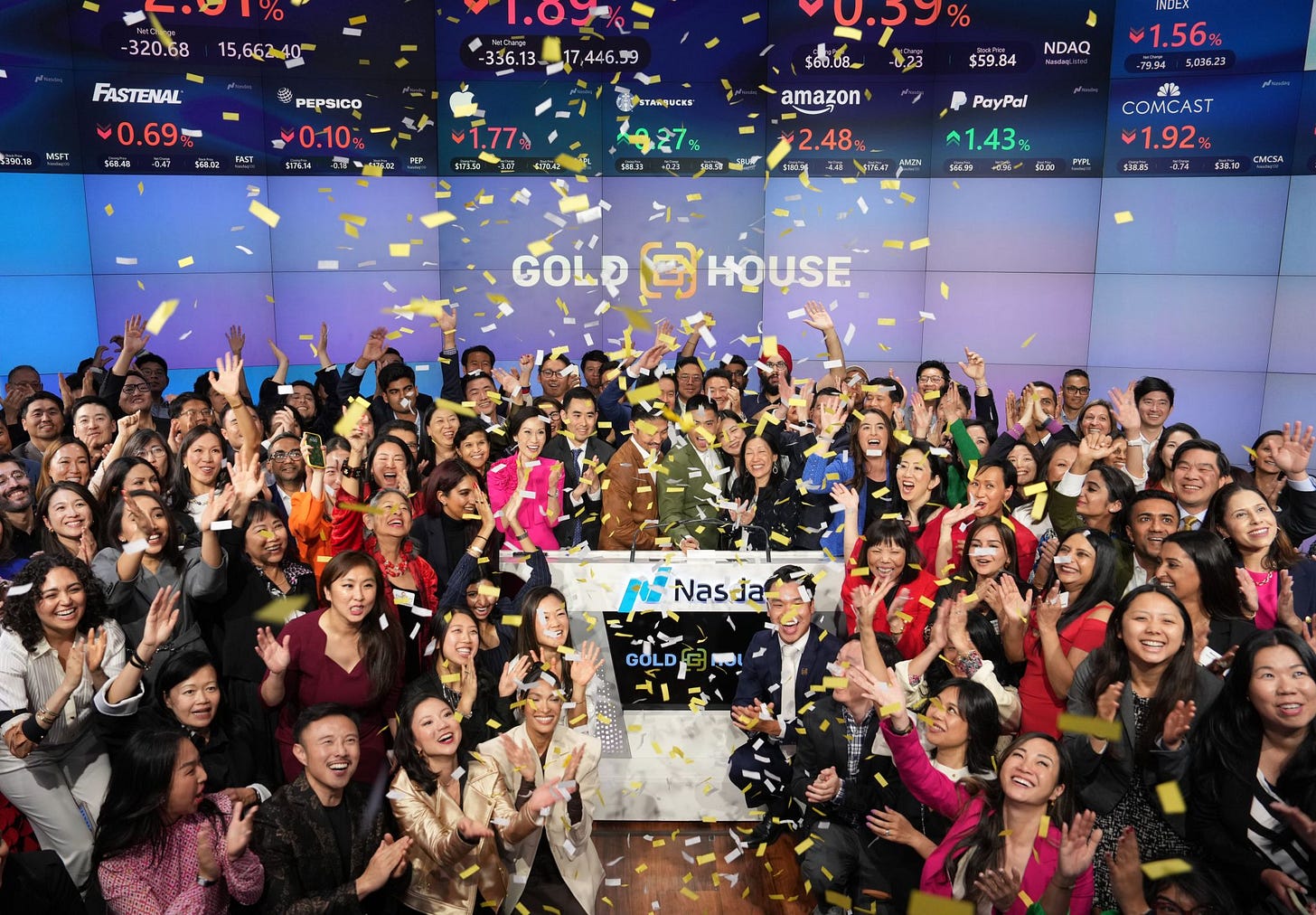
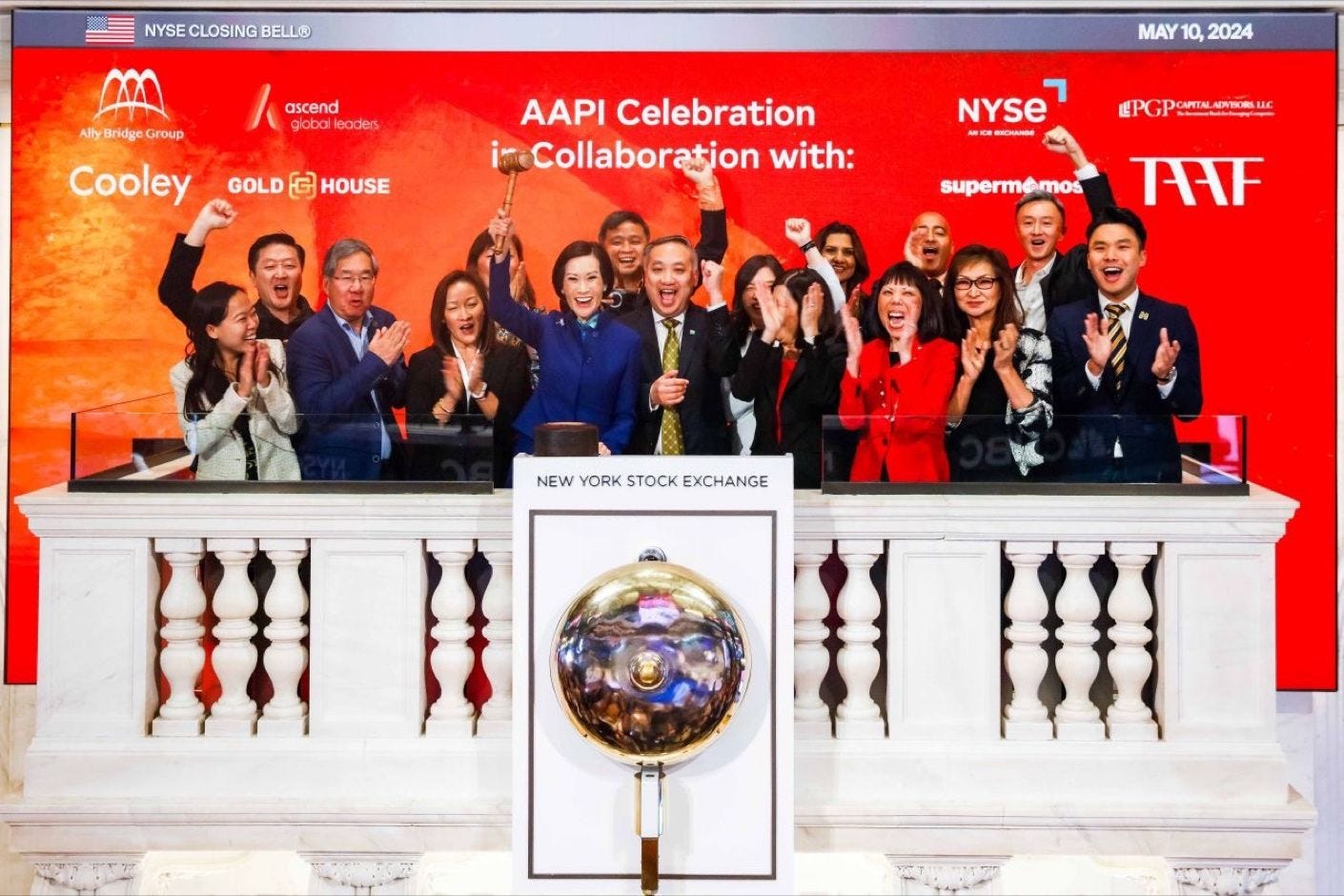
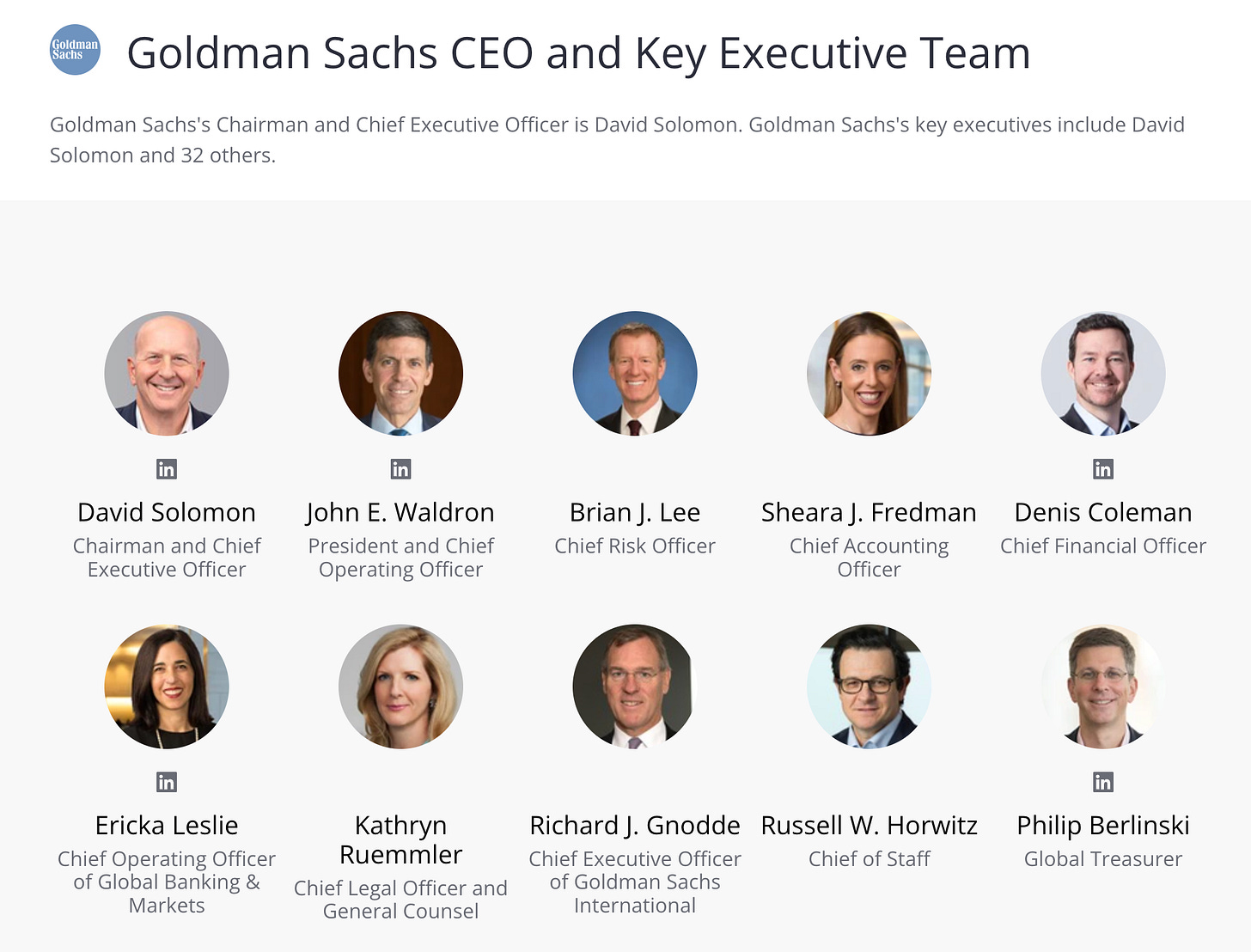
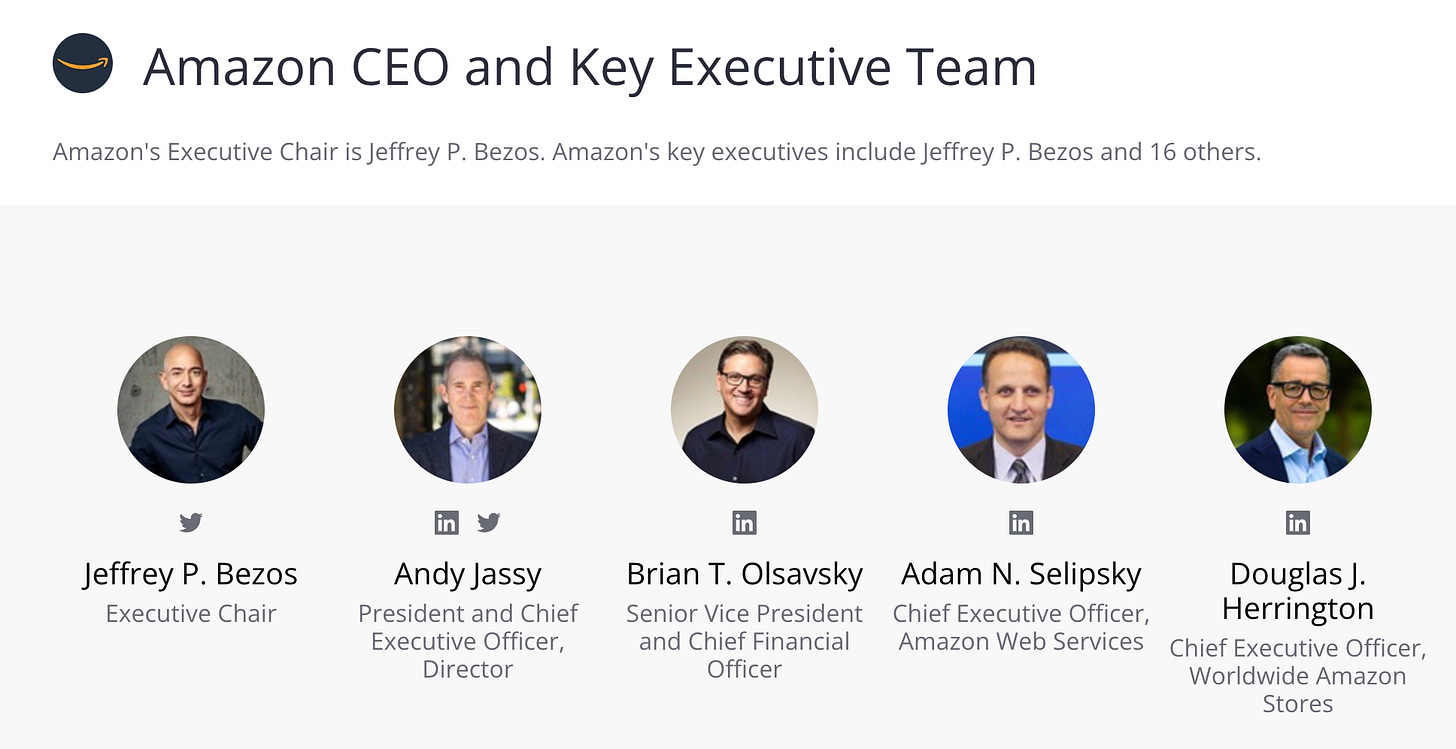
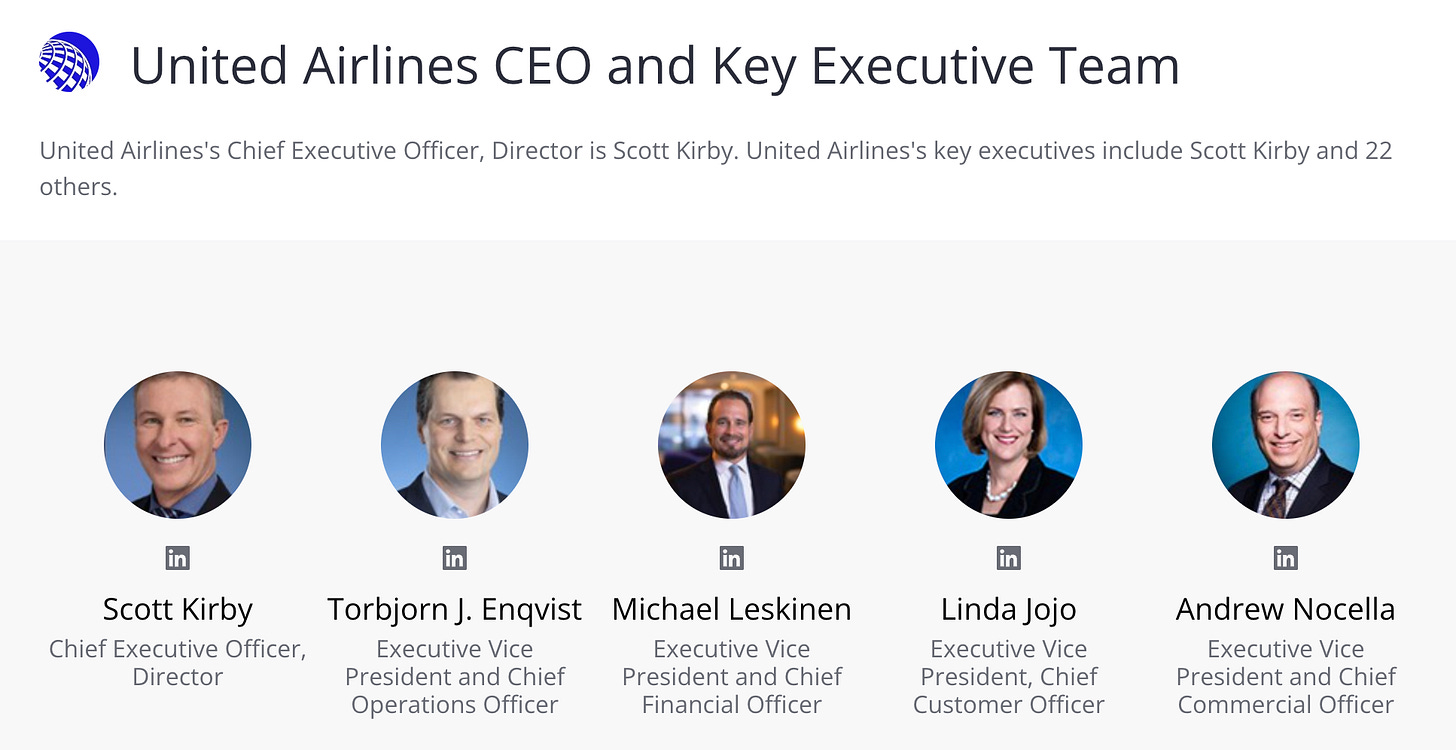
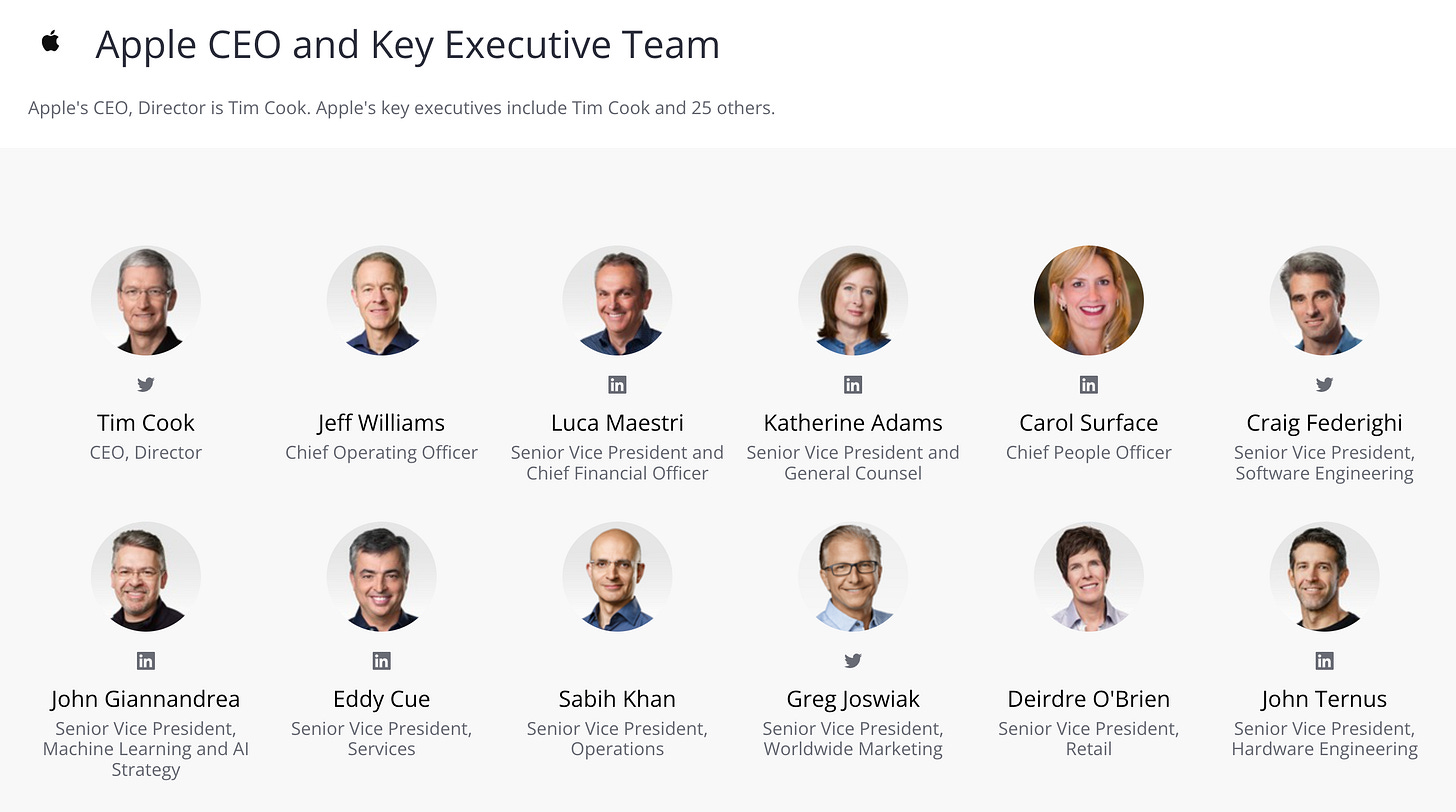
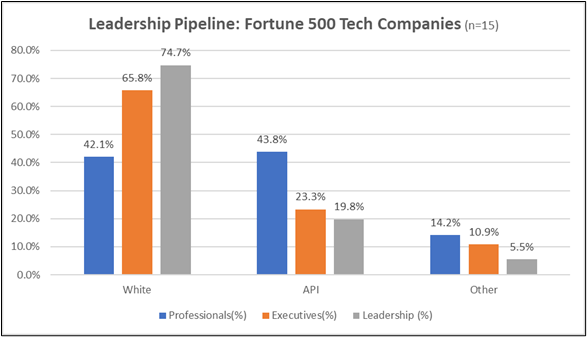
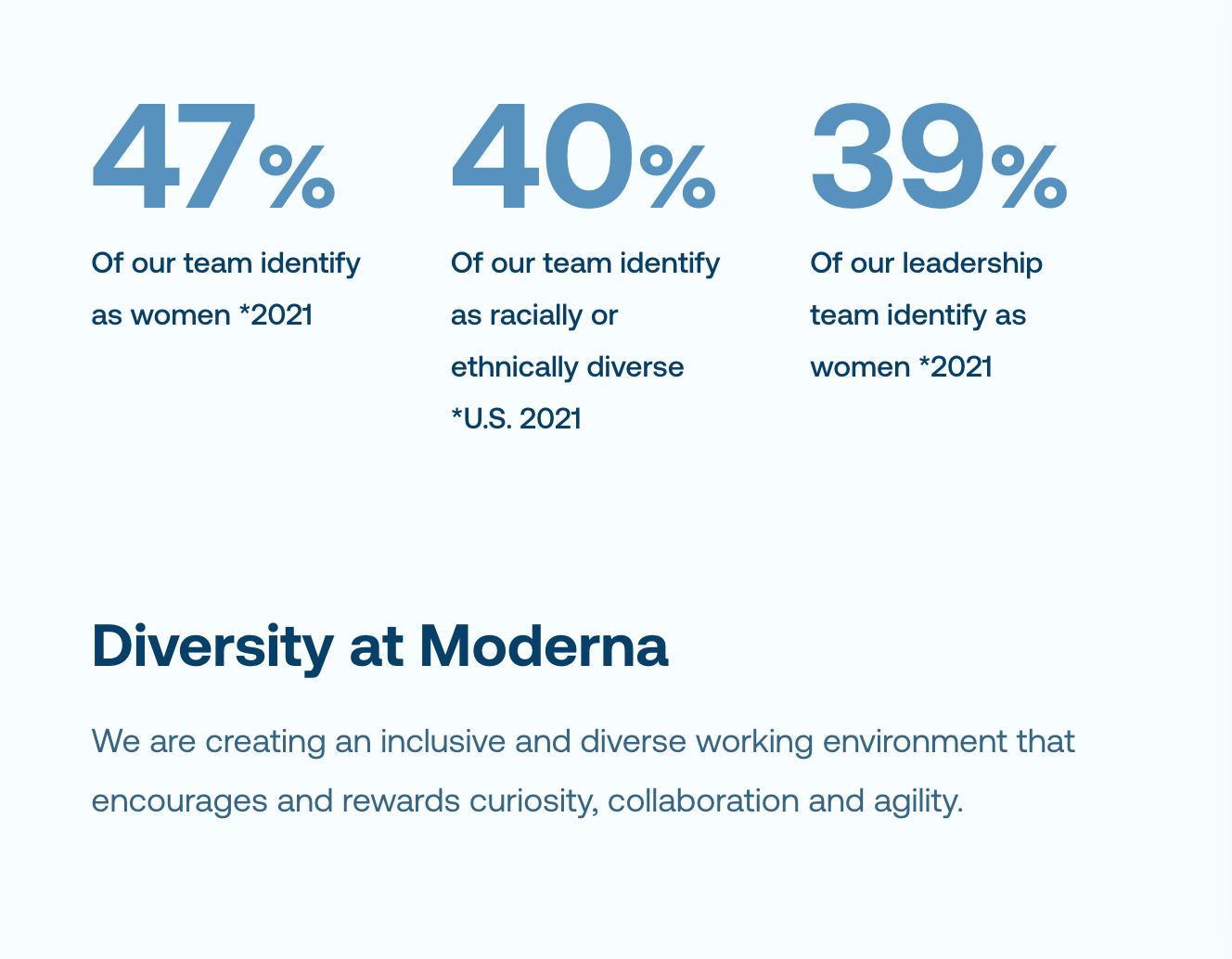
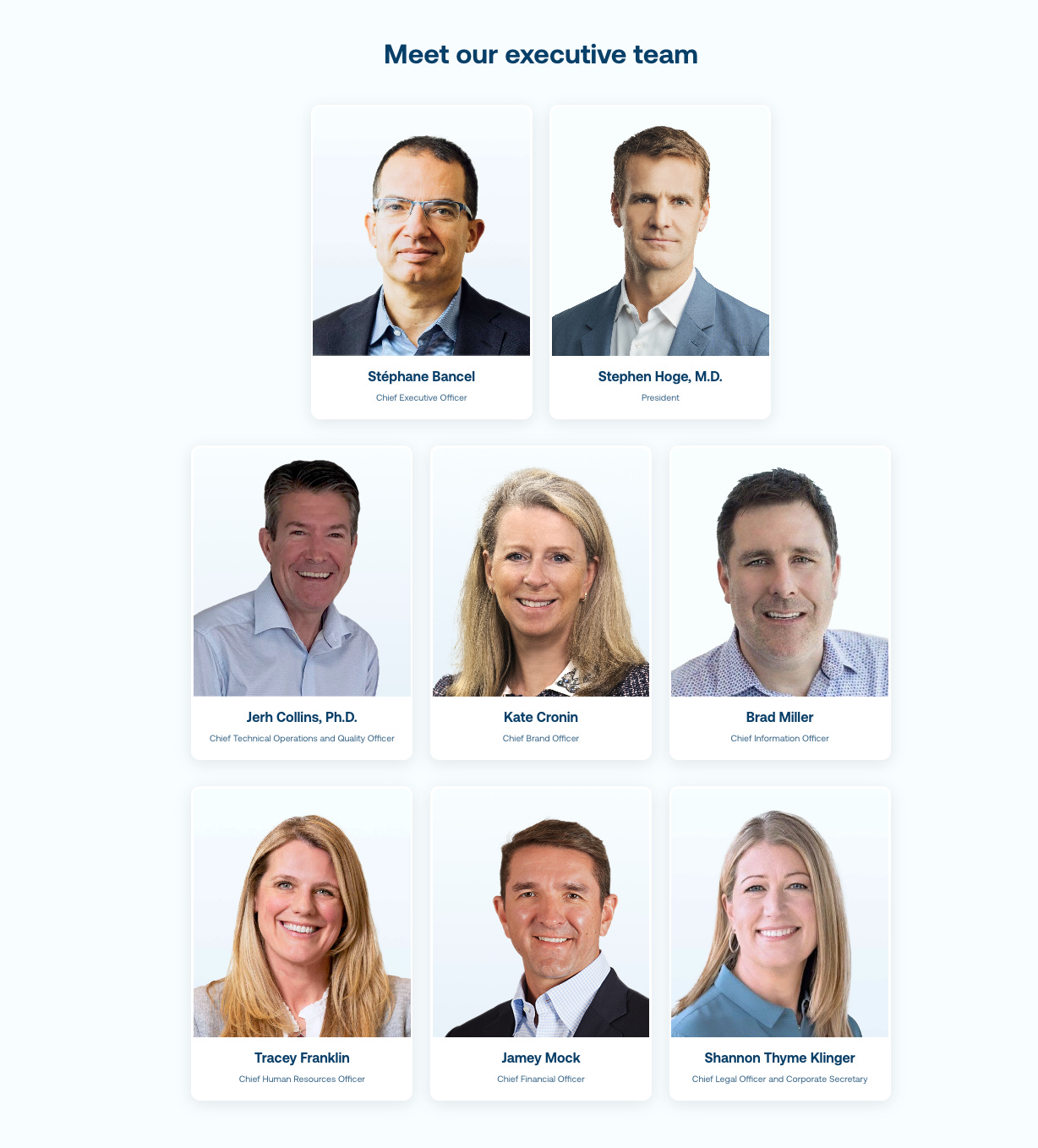
thank you for being so detailed! The screenshots of the leadership teams really put it in perspective.
What about https://en.m.wikipedia.org/wiki/Patrick_Soon-Shiong